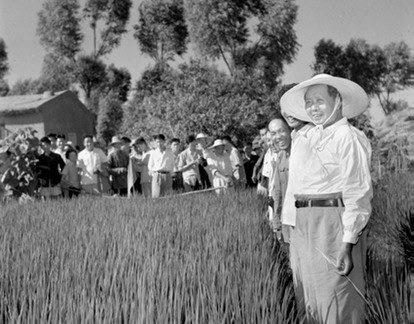The Times, 9 July 1011
Mao’s Great Famine by Frank Dikötter is a harrowing and brilliant book, meticulously researched, gripping and supremely important. Anyone reading it will be unable to think of Mao Zedong’s rule over China in quite the same way again. Indeed, as Brenda Maddox, one of my fellow judges on the BBC Samuel Johnson book prize, put it: this is a book that changes your life.
With access to hitherto hidden Chinese archives and a vast range of official documents, Dikötter has revealed the full extent of the manmade disaster that Mao called The Great Leap Forward. Instead of catapulting China into superpower status, the forced collectivisation of the Chinese peasantry, beginning in 1958, plunged the country backwards into famished darkness, killing 45 million people, according to Dikötter’s new and terrifying estimate.
Mao and his cronies knew what was happening in the countryside. But in their unswerving addiction to ideology and power, they didn’t care.
The scale is breathtaking: the gigantism of Mao’s vision and his hubris, and the vastness of the suffering. Starving peasants ate mud and plaster from the walls, and sometimes each other; families sold children for scraps; vast forests were cut down, and buildings razed to make fertiliser, in probably the largest systematic destruction of real estate the world has seen. Sparrows were virtually wiped out. The land fell eerily silent.
The violence needed to sustain this madness was astonishing. The party cadres, knowing their own survival depended on competitive brutality, killed and maimed with abandon. “Suicide reached epidemic proportions,” writes Dikötter. “Between one and three million people took their own life during the Great Leap Forward.”
Dikötter, Professor of Humanities at the University of Hong Kong, writes in a way that is sober and bleak, but never detached. A different author would have emotionalised such suffering, but the facts, the numbers, the individuals, speak for themselves. He does not preach, rant or demonise, because he does not need to. This is scholarship suffused with a quiet fury.
In some ways, Mao’s Great Famine is the non-fiction equivalent of Cormac McCarthy’s The Road, a vision of what happens when the normal human bonds of society break down utterly, in a world stripped of food, hope and love. In the nightmare Mao fashioned, merely surviving was the only way to rebel.
Mao’s great folly silenced 45 million people. Now they have a voice.

